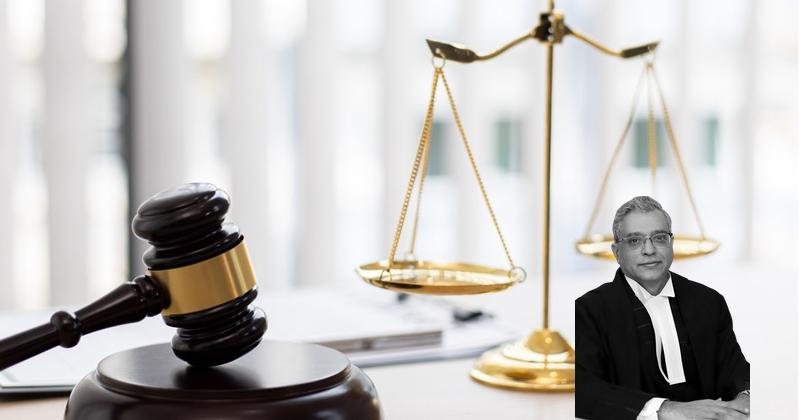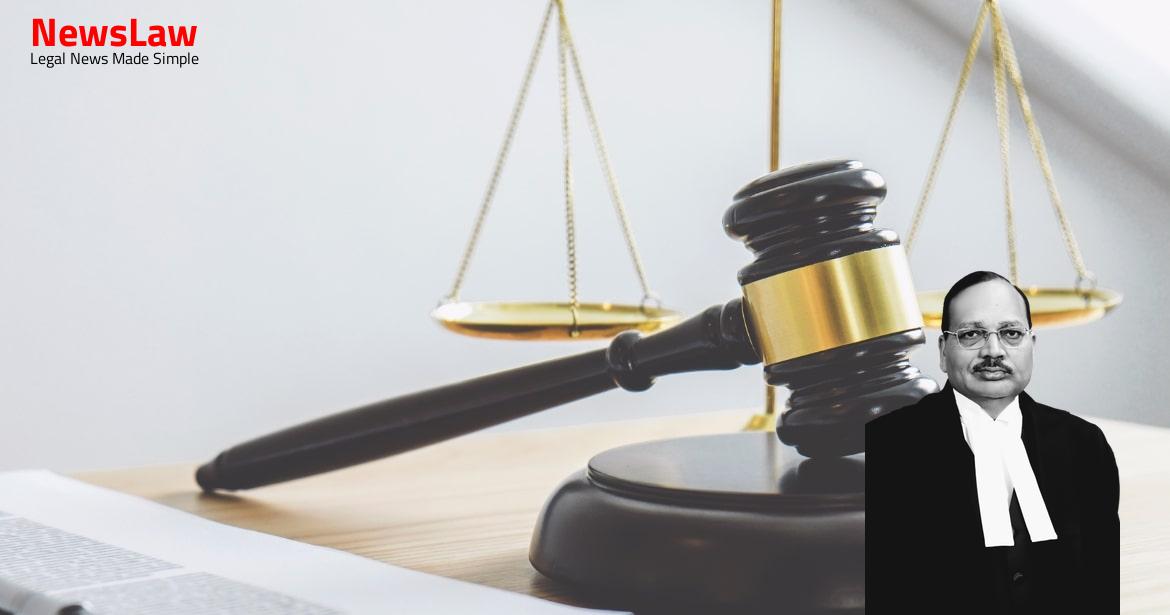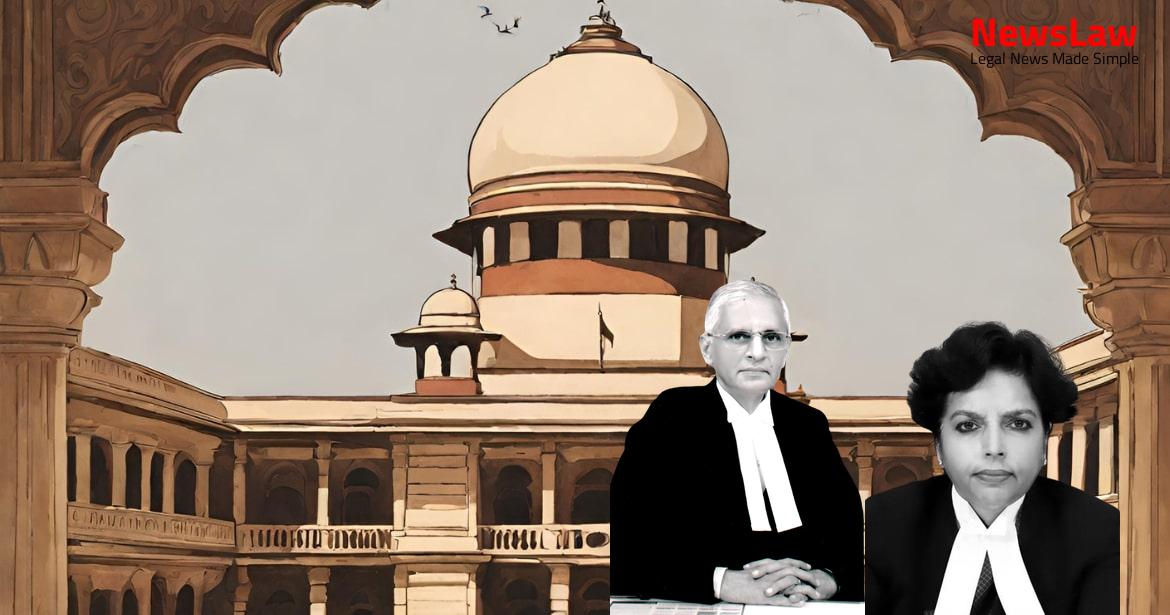10 D.1 Submissions of Counsel………………………………………………… 10 D.2. The Constitution Bench allowed a period of a month from the date of judgment to petitioners whose applications seeking review of the judgment of this Court confirming the award of the sentence of death were rejected by circulation, where the sentence was yet to be executed. A recent study by Project 39A examined all the judgments involving a sentence of death delivered by the Supreme Court between 2007 and 2021 as part of which it analysed the exercise of the review jurisdiction in capital PART A cases.
Arif, however, was not persuaded by the argument of involving two additional judges beyond the judges who had heard the original appeal during the hearing of the review petition. 7 cases from the first lot of 13 re-opened review cases and 3 cases from the second lot of 10 fresh review cases, all of the benches in review were of a different composition from the bench that decided the appeal.
Arif, the order dated 20 March 2013 in the present case dismissing the review petition through circulation was recalled and this review petition was heard in open court. One of the witnesses is the individual who runs the booth and has testified that the petitioner made a call enquiring regarding the payment of money. The petitioner’s appeal was dismissed by the High Court of Judicature at Madras by a judgment dated 30 September 2010.
Article 137 of the Constitution states that the Supreme Court has the power to review any judgment pronounced by it subject to provisions of law made by the Parliament or any rules under Article 145. That the 15-digit IMEI number for the cell phone, allegedly belonging to the petitioner containing the SIM with mobile number ending with XXX5961, mentioned in the seizure memo differs from the IMEI number mentioned in the call detail record; d. The counsel submitted that the above grounds do not amount to errors apparent on the face of the record and do not meet the standard for re-appreciating evidence by this Court in review PART D jurisdiction in the face of concurrent findings of the Trial Court, the High Court and this Court. The difference in the IMEI number recorded in the seizure memo and the call detail record pertains to the last PART D digit of the 15-digit IMEI number. Technically, the last digit, which is the only digit that is different in the seizure memo and the call detail record, can be calculated through the algorithm on the basis of the first 14 digits which are the same in both the documents. As the last digit of an IMEI number is a function of the first 14 digits, as long as the first 14 digits are a match, it can only lead to one unique device.
It was upon the petitioner, at the stage of cross- examination of PW1 to raise questions regarding the number ending with XXX847 belonging to her or regarding the call alleged to have been made by the petitioner on 28 July 2009 mentioned by PW16. The call detail records of the mobile number ending with XXX5961 confirm that two calls were made to PW8 at 9:22PM and 9:25PM on 27 July 2009. However, a three judge bench in Tomaso Bruno v State of Uttar Pradesh took a different approach and observed that secondary evidence of the PART D contents of a document can also be led under Section 65 of the Evidence Act without referring to the decision in Anvar P.V. A two judge bench in Shafi Mohammed v State of Himachal Pradesh strayed even farther away from Anvar P.V. Therefore, the law is now settled: a Section 65B certificate is mandatory in terms of this Court’s judgment in Anvar P.V.
This Court PART
D dismissed the appeal and confirmed the death sentence on 5 February 2013. It held that: 44.
Also Read: https://newslaw.in/case-type/civil/courts-analysis-on-compliance-with-resolution-plan-conditions/
Therefore, we are inclined to agree with the ratio in Sonu by not allowing the objection which is raised at a belated stage that the CDRs are inadmissible in the absence of a Section 65B certificate, especially in cases, where the trial has been completed before 18 September 2014, i.e. Arif v State (NCT of Delhi), a three judge Bench of this Court while deciding a review petition in a case involving the review of a death penalty faced a similar fact situation where the decisions of the trial court and appellate courts were rendered during the period when Navjot Sandhu was the prevailing law.
The trial court also followed the proper procedure in taking the testimony of PW2, a child witness, by recording the maturity of the mind of the child, who even identified the motorbike before the Court.
Furthermore, as this Court noted, material objects were recovered on the basis of the petitioner’s statement: PART D 52. The counsel for the petitioner has also pressed upon this Court to reconsider the quantum of the sentence in terms of the capital punishment which has been ordered by the Trial Court and confirmed in appeal in judgment of the High Court and this Court. This Court has already applied the relevant standard to confirm the guilt of the petitioner in the appeal in a case which is based on circumstantial PART E evidence and it will not be appropriate for this Court to once again venture into an assessment of the evidence in the review jurisdiction in view of its limited scope. In Santa Singh v State of Punjab, a two judge Bench of this Court highlighted the requirement of having a separate sentencing hearing in view PART E of Section 235(2) of the CrPC and noted that the stage of sentencing was as important a stage in the process of administering criminal justice as the adjudication of guilt. The importance of a separate sentencing hearing being afforded to the accused after recording a conviction was reiterated in Anguswamy v State PART E of Tamil Nadu, Malkiat Singh v State of Punjab and Dattaraya v State of Maharashtra. On the other hand, there have also been judgments of this Court where it was held that while the court may adjourn for a separate hearing, same-day sentencing did not violate the provisions of Section 235(2) of the CrPC and did not in itself vitiate the sentence.
The Trial Court did not conduct any separate hearing on sentencing and did not take into account any mitigating circumstances pertaining to the petitioner before awarding the death penalty. In terms of the aggravating circumstances that were taken note of by this Court in appeal, our attention has been drawn to the following circumstance: We wish to note that the sex of the child cannot be in itself considered as an aggravating circumstance by a constitutional court. A similar point was underlined by this Court in Anil v State of Maharashtra where the Court noted that: PART E 79. The process and powers of the court may be utilised to ensure that such material is made available to it to form a just sentencing decision bearing on the probability of reform. During the course of the hearing of the review petition, this court had passed an order directing the counsel for the state to get instructions from jail authorities on the following aspects: (i) the conduct of the petitioner in jail; (ii) information on petitioner’s involvement in any other case; (iii) details of the petitioner acquiring education in jail; (iv) details of petitioner’s medical records; and (v) any other relevant information.
Separately, this Court also received a document dated 8 November 2018 from the Superintendent of Prisons, Central Prison, Cuddalore-4 in response to the letter from Assistant Registrar, Supreme Court of India communicating the order seeking instructions from jail authorities. However, the jail authorities have brought to the notice of this Court, the attempt of petitioner to escape from prison. Considering the above factors, we are of the view that even though the crime committed by the petitioner is unquestionably grave and unpardonable, it is not appropriate to affirm the death sentence that was awarded to him. Considering the facts of the instant case, we are of the PART F considered view that the petitioner must undergo life imprisonment for not less than twenty years without remission of sentence. Accordingly, we commute the death sentence imposed upon the petitioner to life imprisonment for not less than twenty years without reprieve or remission. ……………………………………………….. CJI
Also Read: https://newslaw.in/case-type/criminal/alleged-misuse-of-official-position-courts-legal-analysis/
[Dr Dhananjaya Y Chandrachud]
Case Title: SUNDAR @ SUNDARRAJAN Vs. STATE BY INSPECTOR OF POLICE (2023 INSC 264)
Case Number: R.P.(Crl.) No.-000159-000160 / 2013



